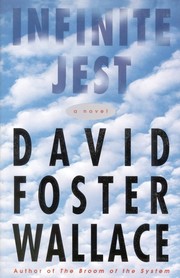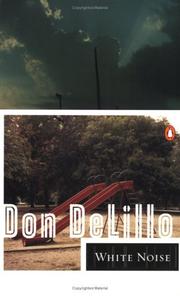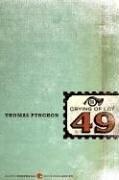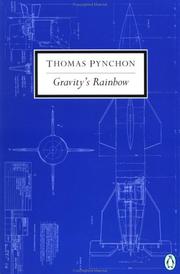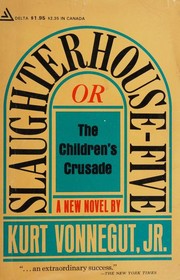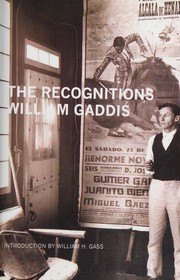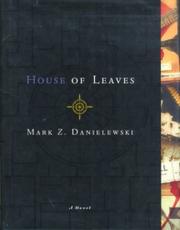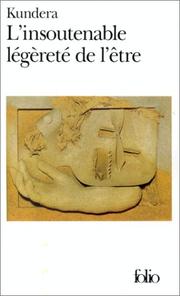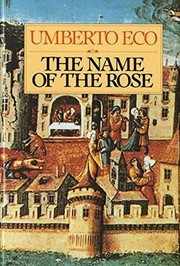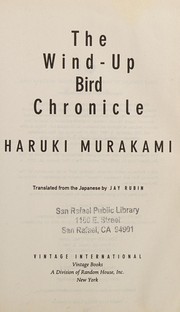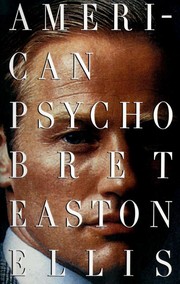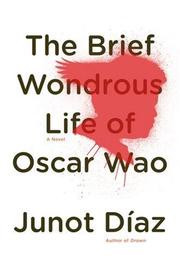Are you ready to dive into the complex and thought-provoking world of postmodernism? Look no further than this curated list of the 20 best books about postmodernism. Whether you’re a seasoned scholar or simply curious about this influential movement, these books offer a deep dive into the key concepts, theories, and works that have shaped the postmodernist landscape. From critical essays to literary works, each book on postmodernism is sure to challenge your perceptions and expand your understanding of this fascinating subject. Let’s embark on a journey through the most compelling postmodernism books and explore the diverse perspectives that have redefined contemporary thought.
Contents
- 1 20 Best Postmodernism Books
- 2 Infinite Jest
- 3 White Noise
- 4 The Crying of Lot 49
- 5 Gravity’s Rainbow
- 6 Slaughterhouse-Five
- 7 If on a Winter’s Night a Traveler
- 8 The Recognitions
- 9 House of Leaves
- 10 The Savage Detectives
- 11 The New York Trilogy
- 12 The Unbearable Lightness of Being
- 13 The Name of the Rose
- 14 Beloved
- 15 Blood Meridian
- 16 The Wind-Up Bird Chronicle
- 17 The Satanic Verses
- 18 American Psycho
- 19 The Brief Wondrous Life of Oscar Wao
- 20 The Things They Carried
- 21 Postmodernism, or, The Cultural Logic of Late Capitalism
- 22 Final Thoughts on Best Postmodernism Books
- 23
20 Best Postmodernism Books
Infinite Jest
by David Foster Wallace
Infinite Jest, a novel by David Foster Wallace, is a sprawling and intricate book about postmodernism that weaves together a complex narrative that explores addiction, entertainment, and the search for meaning in a hyper-connected world. Set in a near-future North America, the novel follows a diverse cast of characters, including a tennis prodigy, a drug addict, and a filmmaker, as their lives intersect in unexpected ways.
Wallace’s writing is known for its dense, intricate style and its exploration of the fragmented nature of contemporary life. Infinite Jest is no exception, featuring footnotes, multiple storylines, and a non-linear narrative structure that challenges traditional storytelling conventions. The novel is both a reflection of and a commentary on the postmodern condition, with its emphasis on irony, self-reference, and the blurring of boundaries between high and low culture.
Infinite Jest has been praised for its ambitious scope and its incisive critique of contemporary society, making it a must-read for anyone interested in postmodernism and experimental fiction.
White Noise
by Don DeLillo
White Noise by Don DeLillo is a thought-provoking and darkly humorous book on postmodernism that delves into the anxieties and uncertainties of modern life. Set in a small college town, the novel follows Jack, a professor of Hitler studies, and his family as they navigate the chaos of contemporary society. With themes of consumerism, media saturation, and the fear of death, White Noise is a compelling exploration of the postmodern condition.
DeLillo’s writing is sharp and observant, capturing the absurdities of everyday life and the ways in which technology and mass media shape our perceptions of reality. The novel’s blend of satire, existential dread, and philosophical inquiry makes it a captivating and relevant read for anyone interested in a book about postmodernism. With its keen insights and unique narrative style, White Noise stands as a seminal work in the postmodernism book genre, offering a powerful commentary on the complexities of contemporary existence.
The Crying of Lot 49
by Thomas Pynchon
The Crying of Lot 49 by Thomas Pynchon is a mind-bending postmodernism book that follows Oedipa Maas as she unravels a complex and mysterious conspiracy. Set in the 1960s, the novel takes readers on a surreal journey through a world where nothing is as it seems. Pynchon’s intricate prose and playful narrative style make this a captivating and thought-provoking read.
As Oedipa delves deeper into the web of secrets and symbols, she becomes increasingly entangled in a surreal and absurd landscape, where reality and illusion blur. The novel is a book about postmodernism that challenges traditional narrative conventions and explores themes of paranoia, information overload, and the elusive nature of truth.
With its rich symbolism, intricate plot, and enigmatic characters, The Crying of Lot 49 is a compelling exploration of the complexities of modern life and the struggle to find meaning in a world that seems increasingly fragmented and chaotic.
Gravity’s Rainbow
by Thomas Pynchon
Gravity’s Rainbow, a book about postmodernism, is a complex and enigmatic novel that takes readers on a wild, hallucinatory journey through World War II Europe. Thomas Pynchon weaves a sprawling narrative that encompasses a wide array of characters, themes, and historical events, creating a rich and intricate tapestry of postmodernist literature.
The novel follows the exploits of an eclectic cast of characters, including a paranoid American soldier, a British intelligence officer, and a mysterious German rocket scientist. Pynchon’s prose is dense and allusive, filled with obscure references, puns, and wordplay that challenge readers to unravel the novel’s many layers of meaning.
Gravity’s Rainbow is a book on postmodernism that defies easy categorization, blending elements of science fiction, historical fiction, and black comedy into a heady, disorienting brew. It is a challenging and rewarding read for those willing to grapple with its labyrinthine complexity and thematic depth, making it a quintessential postmodernism book.
Slaughterhouse-Five
by Kurt Vonnegut
Slaughterhouse-Five, a postmodernist book by Kurt Vonnegut, is a unique blend of science fiction, war novel, and autobiography. The story follows the experiences of Billy Pilgrim, a World War II soldier who becomes “unstuck in time” and experiences his life in a non-linear fashion. Vonnegut uses this unconventional structure to explore the psychological and emotional impact of war, as well as the concept of free will and determinism.
Through its fragmented narrative and dark humor, the novel challenges traditional storytelling and offers a poignant commentary on the absurdity of war and the human condition. Vonnegut’s writing style is both thought-provoking and entertaining, making Slaughterhouse-Five a compelling read for those interested in postmodernism and non-traditional narratives. With its themes of time, memory, and the nature of reality, this postmodernism book continues to captivate and resonate with readers decades after its publication.
If on a Winter’s Night a Traveler
by Italo Calvino
If on a Winter’s Night a Traveler by Italo Calvino is a captivating and innovative book on postmodernism that takes the reader on a journey through a series of interconnected stories. The novel is structured as a story within a story, presenting a unique and thought-provoking narrative that challenges traditional storytelling conventions. Through its playful and unconventional approach, the book about postmodernism blurs the lines between reality and fiction, inviting readers to question the nature of storytelling and the act of reading itself. Calvino’s masterful use of language and storytelling techniques creates a mesmerizing and immersive reading experience, making it a must-read for anyone interested in postmodernism literature. If on a Winter’s Night a Traveler is a postmodernism book that pushes the boundaries of traditional storytelling, offering a fresh and engaging perspective on the nature of narrative and the role of the reader in shaping the meaning of a text.
The Recognitions
by William Gaddis
The Recognitions by William Gaddis is a seminal book on postmodernism that explores the complexities of art, identity, and authenticity in a modern world. The novel follows the life of a young artist, Wyatt Gwyon, as he grapples with the pressures of society, religion, and the art world. Set in New York City and Europe, the novel delves into the fragmented nature of reality and the blurred lines between truth and illusion.
Gaddis’ writing style is both intricate and immersive, as he weaves together multiple narratives and perspectives to create a rich tapestry of interconnected stories. The novel is a thought-provoking exploration of the human condition, and it challenges readers to question the nature of reality and the authenticity of art in a world dominated by commercialism and mass production.
The Recognitions is a book about postmodernism that continues to captivate readers with its profound insights and complex characters, making it a timeless classic in the realm of postmodern literature.
House of Leaves
by Mark Z. Danielewski
House of Leaves is a mind-bending book on postmodernism that defies traditional storytelling. Written by Mark Z. Danielewski, this novel explores the story of a family who discovers a mysterious hallway that defies the laws of physics within their home. The narrative is presented as a series of found documents, including academic papers, diary entries, and interviews, creating a complex and immersive reading experience.
As readers navigate through the labyrinthine structure of the book, they are confronted with footnotes that lead to other footnotes, unconventional page layouts, and even upside-down text. This unconventional formatting mirrors the disorienting and claustrophobic experience of the characters within the house, blurring the lines between reality and fiction.
House of Leaves is a book about postmodernism that challenges traditional notions of storytelling, reality, and the nature of the self. It’s a haunting and thought-provoking exploration of the tenuous boundaries between the known and the unknown, making it a must-read for anyone interested in postmodernism literature.
The Savage Detectives
by Roberto Bolaño
The Savage Detectives by Roberto Bolaño is a sprawling postmodern novel that follows a group of young poets on a wild and unpredictable journey through Mexico and beyond. The book is a kaleidoscopic exploration of the literary and cultural landscape of the late 20th century, blending elements of poetry, diary entries, and interviews to create a multifaceted narrative.
At its core, The Savage Detectives is a book about postmodernism, challenging traditional notions of storytelling and structure. Bolaño’s use of multiple voices and perspectives creates a sense of fragmentation and disorientation, reflecting the chaotic and uncertain nature of the characters’ lives.
The novel is a testament to the power of literature and the enduring quest for meaning and identity. The characters’ relentless pursuit of artistic expression and their encounters with love, loss, and madness make for a captivating and thought-provoking read. The Savage Detectives is a postmodernism book that pushes the boundaries of storytelling and leaves a lasting impression on its readers.
The New York Trilogy
by Paul Auster
The New York Trilogy by Paul Auster is a captivating book on postmodernism that weaves together three interlocking detective stories set in the heart of New York City. Auster’s masterful storytelling and intricate plotlines challenge traditional notions of reality, identity, and language, making this a must-read for anyone interested in the complexities of human existence.
Each of the three novellas in the trilogy – “City of Glass,” “Ghosts,” and “The Locked Room” – delves into the existential angst and psychological turmoil of the protagonists as they navigate the enigmatic urban landscape. Auster’s exploration of the blurred boundaries between fiction and reality, the fragmented nature of modern life, and the elusive nature of truth make this a thought-provoking book about postmodernism.
With its labyrinthine narratives and enigmatic characters, The New York Trilogy is a quintessential postmodernism book that will leave readers pondering the nature of storytelling and the complexities of the human experience long after they’ve turned the final page.
The Unbearable Lightness of Being
by Milan Kundera
The Unbearable Lightness of Being is a widely acclaimed novel by Milan Kundera, hailed as a classic in the realm of postmodern literature. Set against the backdrop of the 1968 Prague Spring, the novel weaves together the lives of four main characters, exploring love, politics, and the human condition. At its core, the book delves into the philosophical concept of eternal return, questioning the weight of our choices and the impact of our existence in a world devoid of inherent meaning. Kundera’s narrative style is rich and introspective, offering a compelling blend of history, philosophy, and personal relationships. The novel is a poignant exploration of the complexities of human experience, making it a must-read for anyone interested in the intricacies of existence and the human psyche. With its thought-provoking themes and lyrical prose, The Unbearable Lightness of Being is a timeless postmodernism book that continues to captivate readers around the world.
The Name of the Rose
by Umberto Eco
The Name of the Rose by Umberto Eco is a riveting historical mystery set in an Italian monastery in the 14th century. The novel follows the Franciscan friar William of Baskerville and his novice Adso of Melk as they investigate a series of mysterious deaths in the abbey. As they delve deeper into the complex web of secrets and forbidden knowledge within the monastery, they uncover a labyrinth of political intrigue, religious power struggles, and philosophical debates.
Eco’s masterful storytelling weaves together elements of historical fiction, detective fiction, and religious theory, making it a captivating read for fans of literary mysteries and historical dramas. The novel also delves into themes of knowledge, heresy, and the conflict between reason and faith, making it a thought-provoking book about postmodernism and the nature of truth.
With its rich historical detail and intricate plot, The Name of the Rose is a must-read for anyone interested in a compelling postmodernism book that challenges traditional narratives and explores the complexities of human thought and belief.
Beloved
by Toni Morrison
Beloved by Toni Morrison is a compelling and haunting book about the aftermath of slavery and its impact on individuals and communities. Set in post-Civil War Ohio, the story revolves around Sethe, a former slave who is haunted by the trauma of her past, and her daughter Denver. The arrival of a mysterious young woman, who may or may not be the reincarnation of Sethe’s deceased daughter, brings the family’s painful history to the surface.
This Pulitzer Prize-winning novel delves into the themes of trauma, memory, and the legacy of slavery, offering a powerful exploration of the human experience. Morrison’s lyrical prose and masterful storytelling create an immersive reading experience that lingers long after the final page. Beloved is a must-read for anyone interested in the complexities of the post-Civil War era, as well as those drawn to stories of resilience and the enduring impact of trauma. It is a timeless and thought-provoking book about the lasting effects of historical oppression, making it essential reading for anyone interested in the legacy of slavery and its aftermath.
Blood Meridian
by Cormac McCarthy
Blood Meridian by Cormac McCarthy is a dark and brutal novel set in the American West during the mid-19th century. The story follows the journey of a nameless protagonist known only as “the Kid” as he becomes entangled with a group of scalp hunters led by the enigmatic and violent Judge Holden. The novel is known for its unflinching portrayal of violence, vividly described landscapes, and exploration of the nature of evil.
McCarthy’s writing style in Blood Meridian has been praised for its poetic and haunting quality, as well as its exploration of the human condition in the face of relentless brutality. The novel has been hailed as a modern classic and a powerful commentary on the dark side of human nature.
With its unapologetic portrayal of violence and its deep exploration of the human psyche, Blood Meridian has been considered a significant work in the realm of postmodern literature, offering a stark and unflinching look at the complexities of human existence.
The Wind-Up Bird Chronicle
by Haruki Murakami
The Wind-Up Bird Chronicle is a captivating postmodernism book by Haruki Murakami that delves into the complexities of human existence and the blurred boundaries between reality and imagination. The story follows Toru Okada, a disenchanted man who embarks on a surreal journey to find his missing wife, Kumiko. As he delves deeper into his search, he encounters a cast of eccentric characters and becomes entangled in a web of strange events that challenge his perceptions of the world.
Murakami’s masterful storytelling weaves together elements of magical realism, existentialism, and surrealism, creating a thought-provoking narrative that explores the depths of human consciousness and the enigmatic nature of reality. Through its enigmatic plot and multifaceted characters, The Wind-Up Bird Chronicle invites readers to contemplate the complexities of existence and the interconnectedness of the human experience.
With its evocative prose and intricate narrative, this book about postmodernism is a mesmerizing exploration of the human psyche and the enigmatic nature of reality.
The Satanic Verses
by Salman Rushdie
The Satanic Verses by Salman Rushdie is a provocative and controversial book on postmodernism that delves into themes of identity, religion, and the clash of cultures. The novel follows the lives of two Indian actors, Gibreel Farishta and Saladin Chamcha, who survive a terrorist attack on their plane. After the incident, their lives take a surreal turn as they grapple with their own identities and the influence of the past on their present. The novel also weaves in elements of magical realism, blurring the lines between reality and fantasy.
Rushdie’s writing is rich and complex, incorporating elements of mythology, history, and literature to create a multi-layered narrative that challenges traditional storytelling conventions. The book about postmodernism has been the subject of intense debate and controversy due to its exploration of sensitive religious and cultural themes, making it a thought-provoking and challenging read for those interested in postmodernism.
American Psycho
by Bret Easton Ellis
American Psycho by Bret Easton Ellis is a gripping book on postmodernism that follows the life of Patrick Bateman, a wealthy and handsome investment banker living in Manhattan during the 1980s. On the surface, Bateman appears to have it all – wealth, power, and success. However, beneath his polished exterior lies a dark and disturbing secret. As the novel progresses, Bateman’s inner turmoil and descent into madness are revealed, showcasing the emptiness and moral decay of the society he inhabits.
Ellis’s postmodernism book is a scathing critique of consumer culture, superficiality, and the dehumanizing effects of capitalism. The novel’s graphic depictions of violence and Bateman’s detachment from reality blur the lines between truth and illusion, leaving the reader questioning what is real and what is merely a product of Bateman’s disturbed mind.
American Psycho is a thought-provoking and controversial book about postmodernism that challenges societal norms and forces readers to confront the darker aspects of human nature and the world we live in.
The Brief Wondrous Life of Oscar Wao
by Junot Díaz
The Brief Wondrous Life of Oscar Wao by Junot Díaz is a riveting book about postmodernism that weaves together history, fantasy, and pop culture. Set in the Dominican Republic and the United States, the novel follows the life of Oscar, an overweight, science fiction-loving “ghetto nerd” who is obsessed with finding love and escaping the curse that has plagued his family for generations. Díaz expertly combines elements of magical realism, historical fiction, and contemporary storytelling to create a multi-layered narrative that explores themes of identity, love, and the immigrant experience. The narrative is also interspersed with footnotes and references that add to the depth and complexity of the story, making it a truly immersive reading experience. The Brief Wondrous Life of Oscar Wao is a powerful and thought-provoking postmodernism book that offers a unique and engaging perspective on the immigrant experience and the search for belonging.
The Things They Carried
by Tim O’Brien
The Things They Carried by Tim O’Brien is a captivating book on postmodernism that blurs the lines between fiction and reality. Through a series of interconnected short stories, O’Brien explores the experiences of a group of American soldiers during the Vietnam War. The book delves into the physical and emotional burdens they carry, both literal and metaphorical, as they navigate the complexities of war and its aftermath.
O’Brien’s writing style is hauntingly evocative, drawing readers into the visceral and emotional landscapes of war. The narrative is fragmented, reflecting the fragmented nature of memory and truth, making it a compelling example of a postmodernism book. The author skillfully weaves together elements of fiction, autobiography, and metafiction to create a thought-provoking and multi-layered exploration of the human experience in the context of war.
The Things They Carried is a powerful and poignant book about postmodernism that challenges traditional storytelling conventions and invites readers to question the nature of truth, memory, and the power of storytelling itself.
Postmodernism, or, The Cultural Logic of Late Capitalism
by Fredric Jameson
Postmodernism, or, The Cultural Logic of Late Capitalism is a seminal book on postmodernism by Fredric Jameson. In this thought-provoking work, Jameson explores the complex relationship between culture and late capitalism, offering a comprehensive analysis of the cultural shifts and transformations that have taken place in the postmodern era. Through a critical examination of various cultural forms such as art, literature, architecture, and mass media, Jameson argues that postmodernism is not simply a style or movement, but a fundamental condition of contemporary society.
By delving into the interconnectedness of culture, economy, and ideology, Jameson elucidates the ways in which late capitalism has shaped and influenced the cultural landscape, giving rise to a new mode of production and consumption. His insightful and incisive critique challenges readers to rethink their understanding of the world in the age of postmodernism, making this book about postmodernism an essential read for anyone interested in the complexities of contemporary culture and society.
Final Thoughts on Best Postmodernism Books
There you have it, the top 20 books about Postmodernism that every avid reader should have on their bookshelf. Whether you’re new to the concept or a seasoned enthusiast, these books offer insightful and thought-provoking perspectives on the complexities of postmodernism. Dive into these captivating reads and explore the diverse and ever-evolving world of postmodern literature.
Which book about Postmodernism is best?
The best book on Postmodernism can vary with personal preference, but three widely recommended titles are:
- Infinite Jest by David Foster Wallace,
- White Noise by Don DeLillo,
- The Crying of Lot 49 by Thomas Pynchon.
Each offers valuable insights and could be a great starting point.
What are the best books to learn about Postmodernism?
For those looking to learn about Postmodernism, there is a wealth of literature that can provide a comprehensive understanding of the subject. Some of the most highly recommended books include:
- Infinite Jest by David Foster Wallace,
- White Noise by Don DeLillo,
- The Crying of Lot 49 by Thomas Pynchon,
- Gravity’s Rainbow by Thomas Pynchon,
- Slaughterhouse-Five by Kurt Vonnegut,
- If on a Winter’s Night a Traveler by Italo Calvino,
- The Recognitions by William Gaddis,
- House of Leaves by Mark Z. Danielewski,
- The Savage Detectives by Roberto Bolaño,
- The New York Trilogy by Paul Auster
These books offer a range of perspectives on Postmodernism, covering various aspects and approaches to the subject.
What are the best books about Postmodernism?
The best books about Postmodernism are:
- Infinite Jest by David Foster Wallace,
- White Noise by Don DeLillo,
- The Unbearable Lightness of Being by Milan Kundera,
- The Name of the Rose by Umberto Eco,
- House of Leaves by Mark Z. Danielewski,
- If on a Winter’s Night a Traveler by Italo Calvino.
Each offers unique insights into the subject. While these books about Postmodernism are highly regarded, it’s important to note that any list of ‘best’ books is subjective and reflects a range of opinions.
What are the best Postmodernism books of all time?
Choosing the best Postmodernism books of all time can vary depending on who you ask, but five titles that are often celebrated include
- Infinite Jest by David Foster Wallace,
- White Noise by Don DeLillo,
- Slaughterhouse-Five by Kurt Vonnegut,
- House of Leaves by Mark Z. Danielewski,
- and The Unbearable Lightness of Being by Milan Kundera.
Each of these books has made a significant impact in the field of Postmodernism and continues to be influential today.

